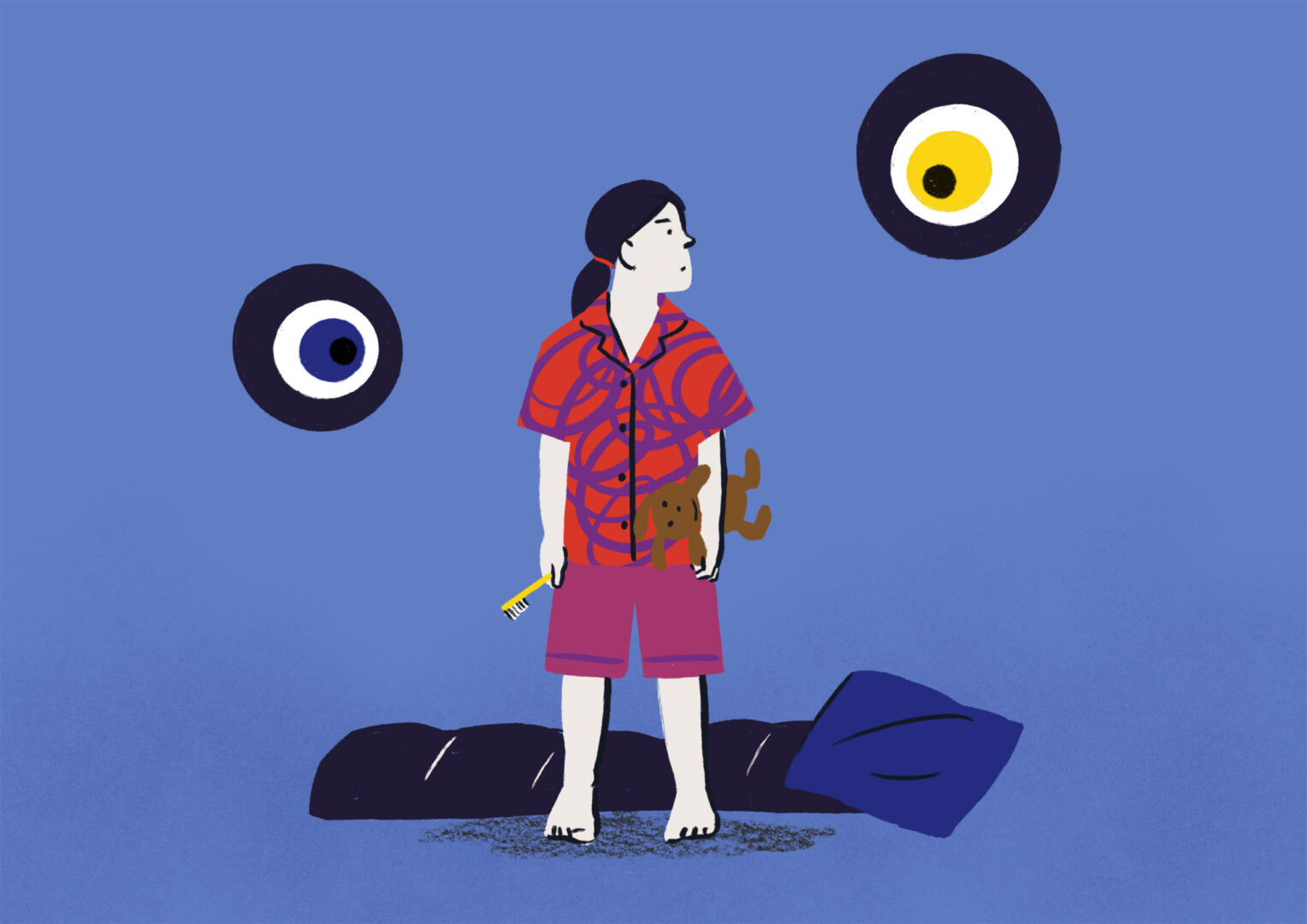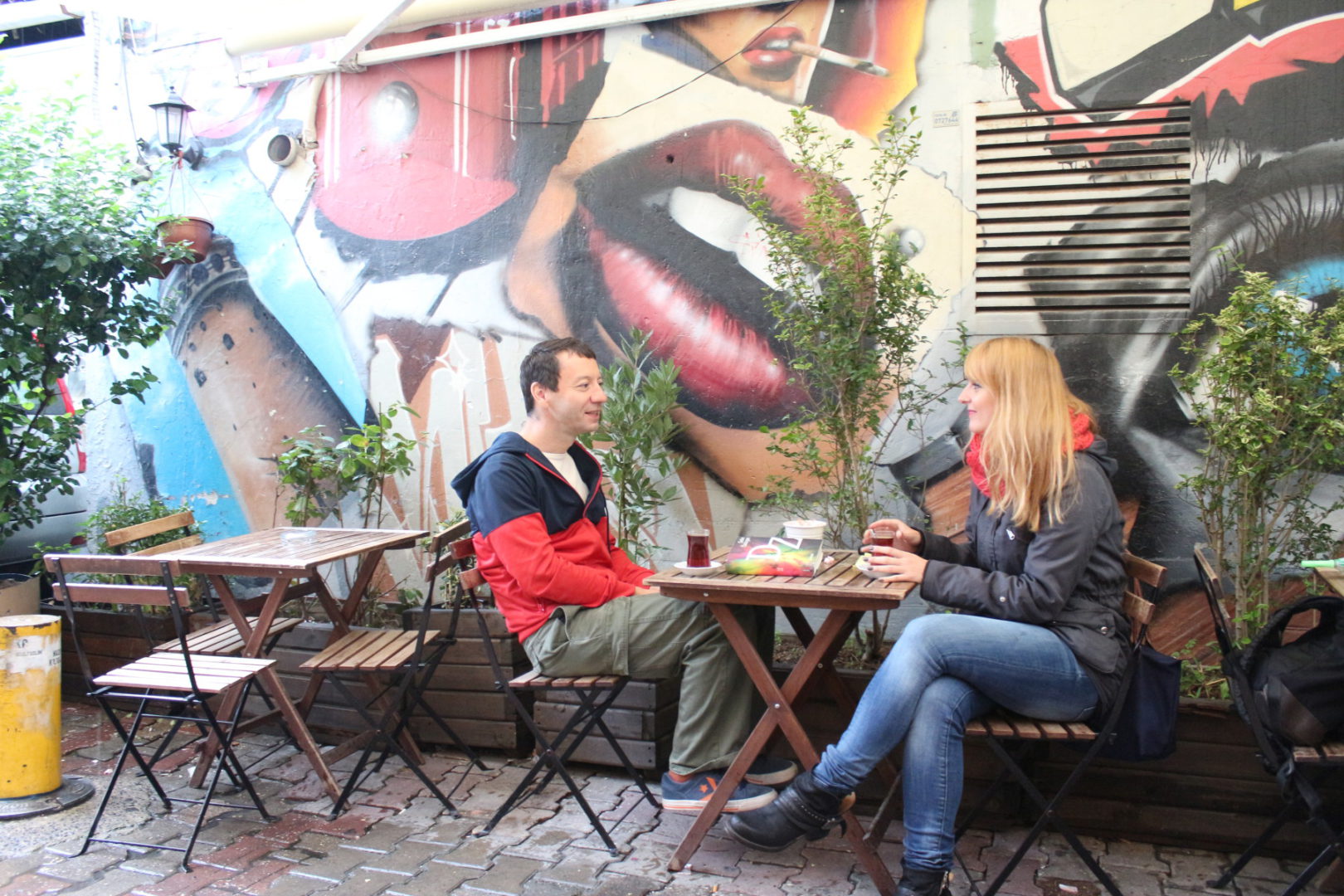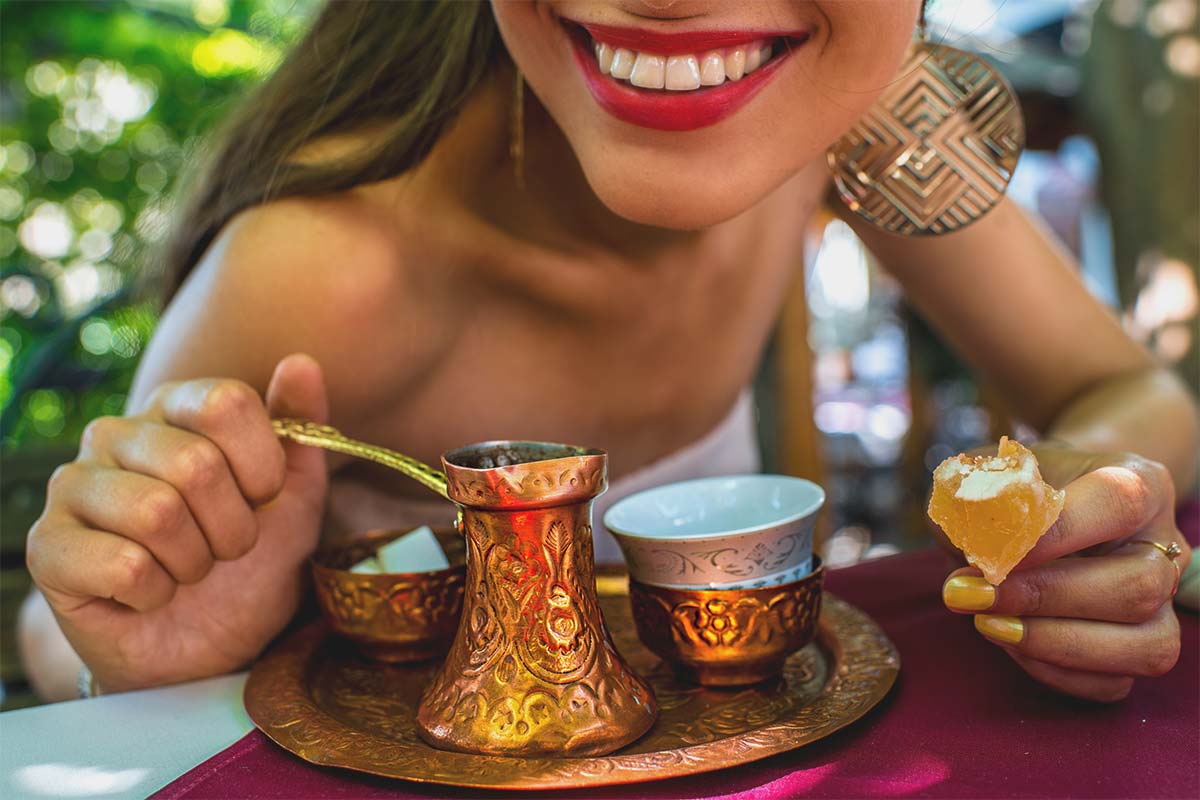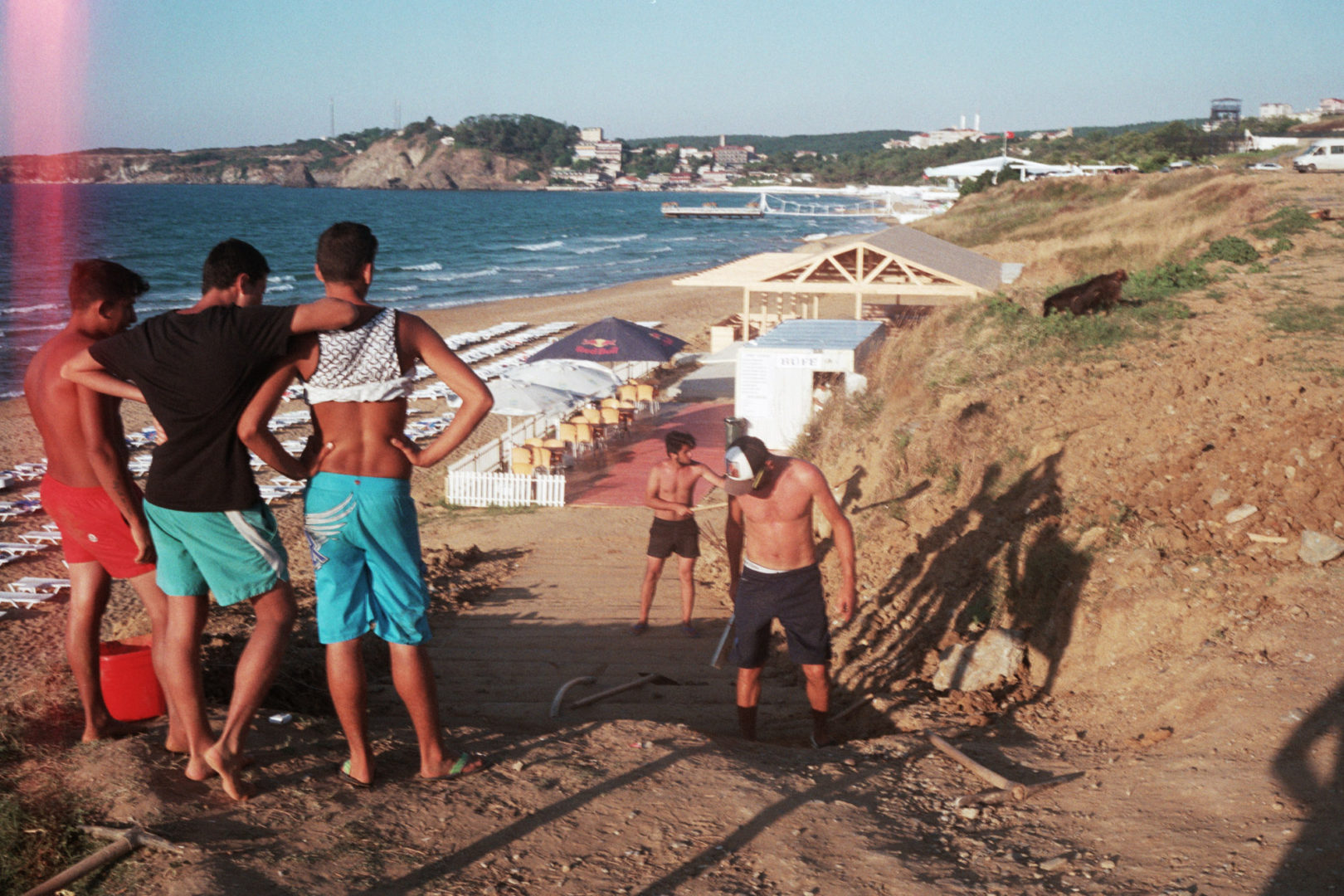If you have ever heard from family, relatives or friends that something you do, say, wear or believe is “ayıp” (shameful), then you should definitely read this. Maybe you have used the word yourself? That’s all the more reason to continue reading this article.
I remember how, as a young girl, that word crept into my life like a virus. Suddenly it was there, like a newly discovered birthmark. The first time I was told that something was “ayıp” I was in my early youth. When I started to become a woman, a lot of things suddenly shifted. Aside from the fact that my body started to change, the rollercoaster of puberty turned me into one of the most difficult and confused teenagers. But first of all, I would like to give you a brief insight into my childhood and youth.
Almost free
I must have been six years old when I was invited to sleep over at a friend’s for the first time. My best friend during my entire kindergarten and primary school was called Nadine. She was a German girl with blue eyes and beautiful straight long hair. Nadine’s mother, like mine, was a single parent. Nadine has no siblings, and I have an older brother. Nadine had a boyfriend, my mom had my father—although she didn’t really have him either because he wasn’t there. I loved going to Nadine’s home. She had a cat, a huge room, a four-poster bed, a Baby Anabelle doll, a Baby Born doll, and all kinds of Barbies and Polly Pockets… If you don’t know what I’m talking about, just imagine the toy paradise you would dream of as a little girl.
This invitation caused a lot of discontent in my family, especially between my mother and my uncle (my mother’s brother), who had two daughters of my age. My mother was determined to offer my brother and me the best possible life—despite and precisely because our father was absent. This meant allowing us to have what other children had without restrictions. Since other children were allowed to stay with friends, I was too. Conceding on something as extraordinary as an overnight stay made my mom proud. Why did she feel proud? Because that wasn’t something that all parents let their children do—at least not in Turkish households. In fact, I was the only girl in our community who was allowed to do so.
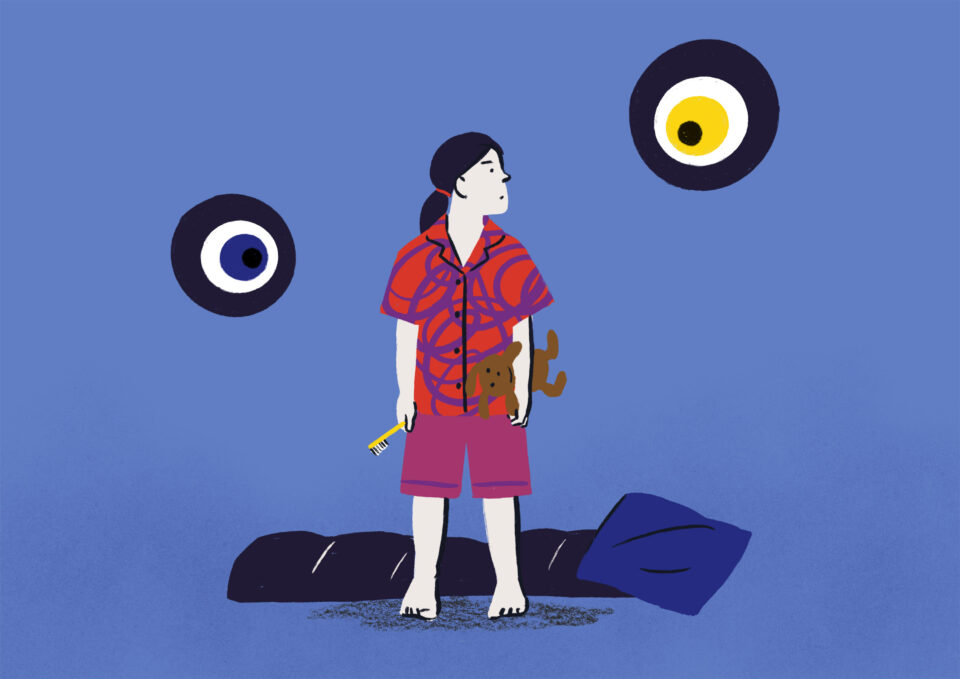
“If you let her sleep at her friend’s once, she’ll want to do it again.”
But until I was a teenager, I didn’t understand my uncle’s argument and why this should raise concern. When I was six years old, I could never have imagined what an “overnight stay” meant at the ages of fourteen, sixteen or seventeen. In retrospect, I think there was something right in what my uncle said. Yes, the fact that I was allowed to stay overnight gave me the freedom to discover things without my mother noticing. Did I dance and sing to N*Sync and Britney Spears until 5 a.m.? (12 years old) Yes, I did. Did we stay awake during overnight parties to talk about life, pain, death, loss, hope, dreams and ghosts before falling asleep?(13 years old) Yes, we did. Did I get completely drunk at my first real party and then found myself throwing up from my friend’s window? (14 years old) Yes, I did. Did I sleep on the net of a soccer goal—no, it wasn’t comfortable at all—and watched shooting stars with my best friend? (17 years old) Yes, I did. Did I smooch with a guy? Yes of course. The list of things I did on those occasions is endless. As much as these experiences from my teenage years are unforgettable, they have also come with lessons that have shaped me.
Lessons learned
Yes, my uncle was right. That loosened the leash. This allowed me to do things my mother would never have approved of had she known. In retrospect, I don’t like everything I did as a teenager. But that’s exactly what it was about. To learn. To experiment. To live. This is socially normal and accepted in most cultures. Some of you will read this and think: Okay, where is she getting at? This is all completely normal. But not exactly. Not for every girl. Would I have died if I hadn’t had these experiences?
No, definitely not. My liver and kidneys would have been grateful, but the truth is that my heart and soul wouldn’t have been fulfilled. The core of my being aspires to be wild, unstoppable, free, full of life, love and laughter. The core of my being is thirsty for adventures, challenges, new faces and places—all those who have this thrust know how painful life can be if you find yourself being fettered by rules, limits and restrictions.
It is more than an overnight stay. It’s about freedom—about living your life independently, and making your own decisions.
At some point, my mother found out what I was doing. I knew I had misused her trust. I had taken advantage of the fact that she was easy and forgiving with me. Nonetheless, it was the only way I could have lived my life the way I wanted to. The life I want to live. It gets complicated here. The life I want to live is free from judgment, rules and unspoken norms, restrictions and shame. My little anecdote about overnight stay is obviously just a small part of the gigantic cake that has made up my life.

Although I had the freedom to escape for one night, and be who I really was, it didn’t mean that I had the freedom to do whatever I wanted to do in public. Reputation for a girl is everything. It is everything for my mother and my brother. And I put our reputation in jeopardy. I was a wild child, and that was the essence of the whole problem. Because what will people think if someone’s daughter starts to do things like drinking and dancing with boys?
Shame on her.
And this is where the rules start to take effect. In the following list, I would like to share a few things that many Turkish girls aren’t allowed to do freely to this day. Things that make adults frown upon, or things that damage their reputation.
Going out when boys are around
Going out
Sharing her opinion
Talking openly about problems
Chewing bubble gum
Painting her fingernails
Drinking alcohol
Wearing shorts or dresses
Wearing tight leggings
Talking to guys when no one else is around
Posting pictures of male friends
Having a messy room
Being a lesbian
Not wearing a bra
Remaining unmarried at a certain age
Traveling alone
Moving out of home
Marrying a German man
Showing her cleavage
Bicycling with a skirt
Living abroad
Studying in another city
Laughing out loud
Cooking non-traditional food
This is a compilation of my own experiences and the experiences that some readers have shared with me. And if you’ve heard the word “ayıp” before, you’ve probably also heard “utanmıyor musun” (aren’t you ashamed?).
For women and men, resisting social norms often means becoming an outsider. In Turkish culture, this is directly related to shame. And shame is linked to depression, aggression, violence, addiction, suicide, eating disorders and bullying. The more shameful certain behaviors are valued by society, the stronger the consequences for the person.
Brené Brown, a psychologist and professor at the University of Houston, spent more than two decades examining shame and feelings of shame*. She defines shame as an intense and painful feeling, leading oneself to feel deficient, faulty, and therefore undeserving of love and belonging. Shame is the conviction that something one has experienced, done or failed to do in life makes one unworthy of connecting with others.
Read that again and let it work on you for a moment.
Shame is like an epidemic in our society and we have to understand how it affects our body image, self-esteem, mental health and behaviour. How it affects the way we raise our children, how we work, and look at each other, says Brown.
Text: Gülcin Karakoyun / Illustration: Seda Demiriz
*Note of the translator: Through her research in the United States, Brené Brown has found that shame is gendered and strongly related to body image for women, which impacts areas of their lives such as identity, sexuality, motherhood, health, aging and confidence. It should be noted that Brown has mostly worked in the USA, and has less experience with migrant contexts in Europe.
